In today's unpredictable world, having an emergency fund is not just a luxury but a necessity. This fund can be a financial lifesaver in times of unexpected crises such as job loss, medical emergencies, or unforeseen repairs. In this blog post, we will explore what an emergency fund is, why it is critical to your financial stability, and how you can establish and maintain one effectively.
An emergency fund acts as a financial cushion that helps you manage sudden expenses without affecting your day-to-day living or falling into debt. The peace of mind that comes from knowing that you have savings set aside can empower you to face financial uncertainties calmly and confidently. In this article, we'll highlight essential aspects of emergency funds and answer your common queries to help you get started.
Let's delve into the details of emergency funds, providing you with insights and strategies that will aid you in building your financial safety net.
1. What is an Emergency Fund?
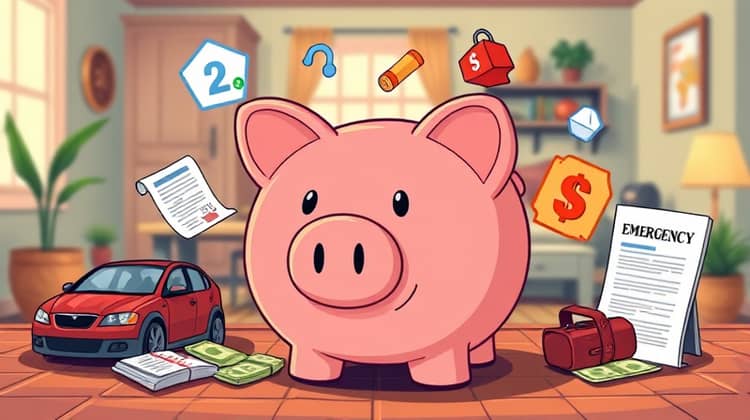
An emergency fund is a specific amount of money that is set aside to cover unforeseen expenses or emergencies. This financial reserve is not intended for regular expenses or minor inconveniences but for significant and unexpected financial challenges that can arise at any time. Having this fund helps you avoid relying on credit cards or loans that could lead to debt.
Typically, individuals aim to save enough to cover three to six months' worth of living expenses. This amount can vary based on personal circumstances, income stability, and individual needs. The key is to have a buffer that allows you to manage financial hardships without panic.
Common examples of situations where an emergency fund may be useful include sudden medical expenses, car repairs, or unexpected job loss. In such cases, an emergency fund can provide you with immediate financial relief.
It's important to note that an emergency fund should be easily accessible. Funds kept in a checking account, savings account, or other liquid assets ensure that you can tap into them quickly when needed. This immediacy is crucial in a crisis.
Building an emergency fund is a proactive step towards financial security. It requires discipline and commitment, but the long-term benefits far outweigh the initial challenges.
Overall, an emergency fund is an essential safety net that helps you manage life’s uncertainties without derailing your financial stability.
2. Why is an Emergency Fund Important?

Having an emergency fund is vital for several reasons. Firstly, it provides financial security in unpredictable situations, allowing you to navigate through difficult times without incurring debt. This financial cushion can reduce stress and anxiety associated with unexpected expenses.
Secondly, an emergency fund gives you the freedom to make choices without the looming pressure of financial constraints. For example, you can focus on finding a job that suits you better after a layoff, rather than accepting the first available offer out of fear of not being able to pay bills.
- Protection from debt: Helps you avoid borrowing money under stressful circumstances.
- Peace of mind: Provides comfort knowing you have a financial safety net.
- Flexibility: Gives you the ability to make life decisions without the pressure of financial stress.
Having an emergency fund is crucial for managing life’s uncertainties effectively. It's not just about having access to money; it’s about the peace of mind that comes from knowing you are prepared for the unexpected.
3. How Much Should You Save?
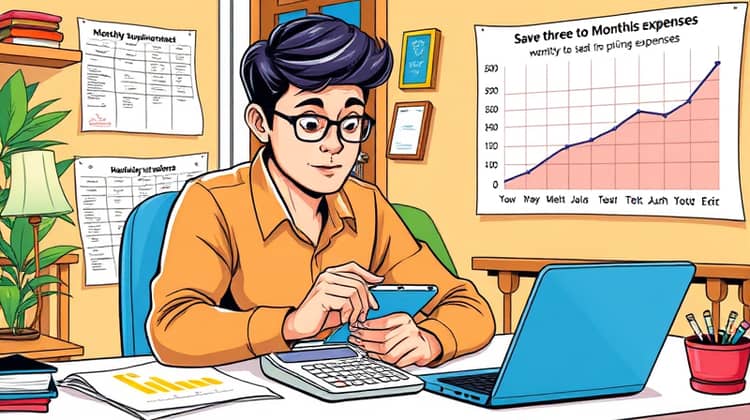
Determining how much to save in your emergency fund can depend on various factors such as your monthly expenses, income stability, and personal circumstances.
- Aim for at least three to six months' worth of living expenses.
- Consider your job stability; if you're in a more volatile industry, save more.
- Factor in any potential upcoming expenses that might arise unexpectedly.
Evaluating your situation regularly can help you decide if you need to adjust your savings milestones, ensuring you are always well-prepared for any eventuality.
4. Where to Keep Your Emergency Fund
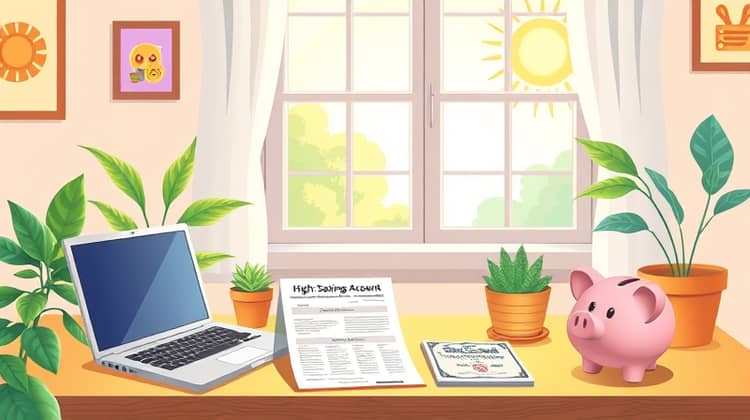
Choosing the right place for your emergency fund is almost as important as saving the money itself. You want an account that allows easy access without sacrificing growth too much.
A high-yield savings account is a popular option for emergency funds. These accounts offer higher interest rates than traditional savings accounts while still being easily accessible, allowing your money to grow without locking it away.
Money market accounts can also be considered for emergency funds as they often offer decent interest rates with check-writing privileges, giving you additional flexibility.
Another option is a separate short-term CD (Certificate of Deposit) which may provide higher interest, but ensure it has a short enough term while still allowing you access to the funds when you need them.
Finally, avoiding investing your emergency fund in stocks or long-term investments is generally advisable, as the market can fluctuate and you don’t want to risk losing that money when you need it the most.
5. How to Build Your Emergency Fund

Building an emergency fund is a systematic process that can significantly improve your financial position.
- Set a savings goal based on your monthly expenses.
- Open a dedicated savings account.
- Automate transfers from your checking account to your emergency fund.
- Cut back on discretionary spending to boost savings.
- Increase your income through side gigs and direct the extra earnings into your fund.
Consistency and commitment are vital to building your emergency fund. Even small contributions can add up over time and give you the peace of mind you crave.
6. When to Use Your Emergency Fund
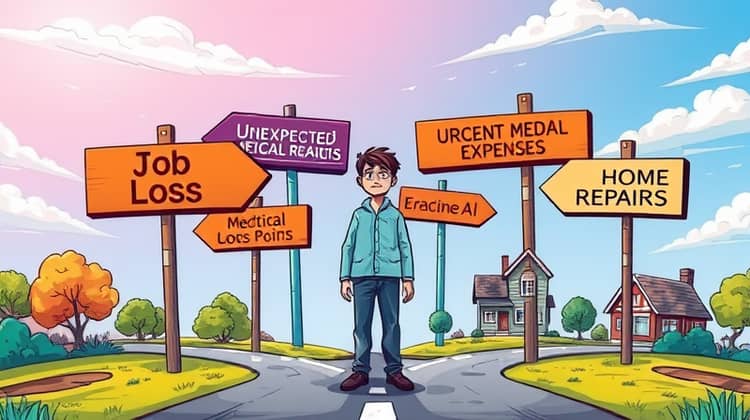
Knowing when to tap into your emergency fund is essential to ensure you maintain it for true emergencies. Generally, the fund should only be used for substantial, unforeseen expenses that cannot be covered by your regular budget.
Common situations for accessing your emergency fund include job loss, unexpected medical expenses, or urgent home repairs. If you face any significant and unpredictable financial distress, it’s time to utilize those funds.
However, it is crucial to distinguish between true emergencies and non-essential expenses that might seem urgent but are not life-altering.
7. Replenishing Your Emergency Fund
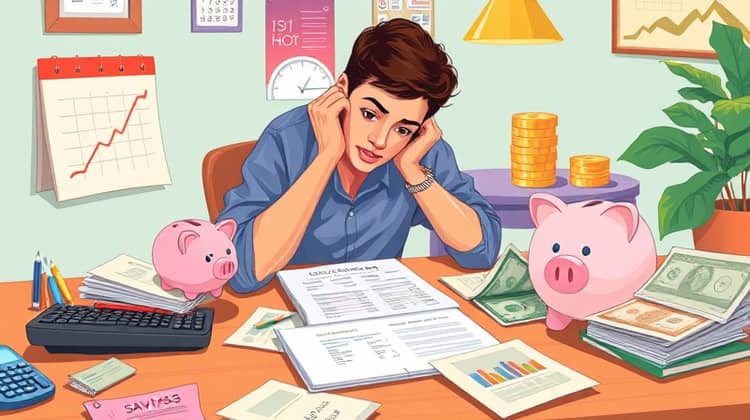
After using your emergency fund, it’s vital to replenish it as soon as possible. This ensures you are prepared for any future emergencies that may arise.
You might want to create a plan or budget that allows you to refill the fund steadily over the coming months after a withdrawal. It’s about balancing your regular expenses while also prioritizing rebuilding your safety net.
Consistently adding to your emergency fund should be part of your financial habits, ensuring you always have a buffer available.
8. Common Questions About Emergency Funds

Many people have queries regarding how to manage their emergency funds effectively. Below are some frequently asked questions that clarify common doubts.
How long will it take to save an emergency fund?
The time it takes to save for an emergency fund varies based on how much you can save each month. Encouraging savings habits and setting clear goals can expedite this process.
For instance, if you aim for three months' worth of expenses and can save $300 a month, it would take 10 months to reach your objective.
- Assess your monthly expenses and set a clear savings target.
- Determine how much you can comfortably save each month.
- Calculate how many months it will take you to meet your goal based on your savings ability.
By breaking it down into manageable steps, saving for an emergency fund can become less daunting and more achievable.
Can I use part of my emergency fund as a down payment on a house or car?
Using your emergency fund for a down payment on a house or car is not advisable, as it could leave you vulnerable to unforeseen expenses afterward. Your emergency fund should remain intact for its intended purpose, ensuring you have financial protection during emergencies.
If you're close to finalizing a large purchase, consider saving separately for the down payment rather than dipping into your emergency reserves.
Do I still need an emergency fund if I have insurance?
Even with insurance, having an emergency fund is crucial. Insurance may cover many expenses, but it often comes with deductibles, co-pays, and other additional costs that you may need to pay out of pocket.
Furthermore, insurance payouts can be delayed, and having ready cash can alleviate immediate financial burdens while waiting for the insurance to process claims.
Conclusion

Establishing an emergency fund is one of the most essential steps you can take towards ensuring financial stability in your life. It acts as a safeguard against the unexpected and promotes a healthier relationship with your finances.
By understanding what an emergency fund is, its importance, and how to create one, you can gain the peace of mind that comes with financial preparedness.














